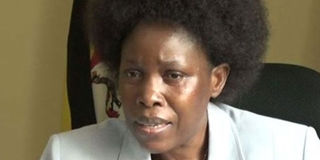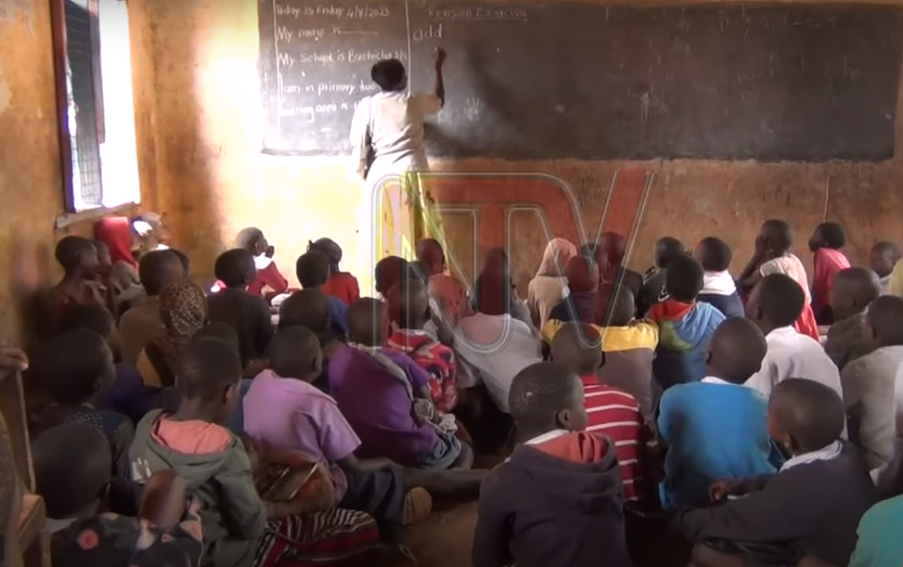Cabinet reapproves shelved plan to merge authorities

Cabinet has resolved to merge over 180 agencies, commissions, authorities and entities in a staff downsizing exercise that will reduce the salary bill by close to Shs988 billion.
Information and National Guidance Minister, Ms Judith Nabakooba said on Tuesday that the process that is part of a mega reorganisation plan aimed at, among other things, realigning functions of agencies and preventing duplication of roles and waste of public funds.
Ms Nabakooba says an inter-ministerial technical committee to handle the merging process is yet to be instituted.
She said that the committee will be required to form a change of management and implementation strategy and hold stakeholder engagement workshops to prepare staff for the new changes.
The minister said that the legal framework of the affected agencies will be reviewed and an institutional and structural framework adding that terms and condition of employees will be reviewed.
She said that the financial implication of the exercise would be represented to cabinet for approval.
Ms Nabakooba said that essential employees from agencies that will be scrapped or merged will be absorbed into the mainstream public service after their credentials are validated.
Thereafter, she said, the salary structure for all agencies would be harmonised in accordance with the approved pay targets.
In 2019, the plan to merge or revert government agencies to parent ministries, which had been drummed up about a year earlier and had been agreed at Cabinet level, was put on hold.
Mr Wilson Muruli Mukasa, the minister of Public Service, said in 2019: “Some of these agencies were established by Acts of Parliament. To scrap them you need to go back to Parliament and have the laws repealed. Others have accumulated debts. You cannot just scrap them (without paying the debts). Those who will be laid off need to be paid. If you don’t pay them they will take you to court. So Cabinet is still studying the matter. Once it is done, it will come up with a report.”
Much as details of the new plan were not revealed by Ms Nabakooba, in September 2018, Cabinet had agreed to only preserve Kampala Capital City Authority, the Uganda Bureau of Statistics (UBOS), Uganda National Bureau of Standards (UNBS), Uganda Communications Commission (UCC) and the National Medical Stores (NMS) but disband, merge or transfer up to 60 other such agencies back to parent ministries.
It was agreed in 2018, for instance, that the National Registration Services Bureau would revert to the Ministry of Justice.
The Uganda National Roads Authority (Unra), Uganda Road Fund (URF) and Transport Licensing Board (TLB) were to revert to the mother Ministry, Works, Transport and Communication.
Under the arrangement, the electricity generation, transmission and distribution companies, and the Rural Electrification Agency were to be merged into a single entity; while the Lotteries and Gaming Regulatory Board and Departed Asians Properties Custodian Board were to be placed under the Ministry of Finance, Planning and Economic Development.
The National Agricultural Advisory Services (Naads), the Uganda Trypanosomiasis Control Council (UTCC), Dairy Development Authority (DDA), Uganda Coffee Development Authority (UCDA) and Cotton Development Organisation (CDO) were to be sent back to the Ministry of Agriculture, Animal Industry and Fisheries.
The National Identification and Registration Authority (Nira) and the NGO Bureau were to be downgraded and placed under the Ministry of Internal Affairs, while the National Information Technology Authority (NITA-U) was to be placed under the Ministry of Information Communication Technology and National Guidance.
The Uganda Land Commission was to be sent back to the Ministry of Lands, Housing and Urban Development, while the Uganda Aids Commission and Uganda Blood Transfusion Services were to be sent back to the Ministry of Health.
Background
The plan came into being after Internal Security Organisation (ISO), responding to an earlier demand by President Museveni for information on how much government ministries and agencies were spending, submitted a report on November 25 that year, which revealed that a lot of money was being spent on duplicated or overlapping functions between main ministries and agencies.
ISO recommended reforms by way of abolishing and merging agencies with overlapping roles with a few of cutting down on wasteful expenditure and using the savings for other purposes, including the enhancement of civil servants’ salaries.
The agencies in question account for 37 per cent of government’s wage bill. Scrapping them would save government close to Shs1 trillion a year in salaries.
It is estimated in 2018 that at least 10,000 people would be affected by the reorganisation.




